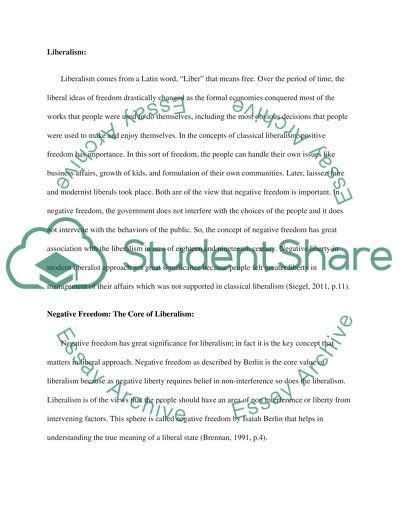Cite this document
(“Importance of negative freedom to liberalism Essay”, n.d.)
Retrieved from https://studentshare.org/sociology/1469718-importance-of-negative-freedom-to-liberalism
Retrieved from https://studentshare.org/sociology/1469718-importance-of-negative-freedom-to-liberalism
(Importance of Negative Freedom to Liberalism Essay)
https://studentshare.org/sociology/1469718-importance-of-negative-freedom-to-liberalism.
https://studentshare.org/sociology/1469718-importance-of-negative-freedom-to-liberalism.
“Importance of Negative Freedom to Liberalism Essay”, n.d. https://studentshare.org/sociology/1469718-importance-of-negative-freedom-to-liberalism.


